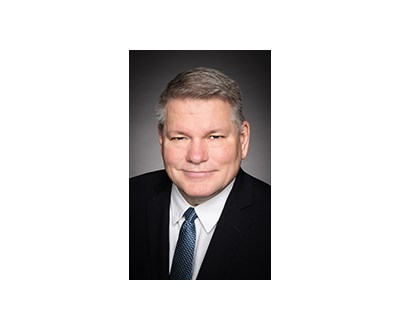Randy Hoback, the MP for Prince Albert, said that his riding supports his decision to vote against Bill C-6, which if passed would restrict the practice of conversion therapy.
“If I go back into the riding right now people would say I’ve done the right thing. They would, because I have had lots of letters saying, ‘Don’t you vote in favour of C-6,’” Hoback said.
“In fact, a lot of people said, ‘Don’t get it to committee even,’ and I said, ‘No, it needs to go through committee, it needs to have proper vetting, and it needs to have the appropriate people come forward.’”
Hoback is one of 63 Conservatives who voted against the bill, which passed with 263 votes and is now headed to the Senate, having support from the Liberals, Bloc Québécois and the NDP. Local MPs Kelly Block, who represents Carlton Trail—Eagle Creek, and Cathay Wagantall, who represents Yorkton—Melville, also voted against the bill
Bill C-6 would amend the Criminal Code to prohibit certain activities that relate to conversion therapy, which is defined as practices, treatment or services designed to change an individual’s sexual orientation to heterosexual or gender identity to cisgender or to reduce non-heterosexual sexual attraction or sexual behaviour.
Specifically, the bill would enact new offences to prohibit causing an individual to undergo conversion therapy against their will; causing a child to undergo conversion therapy; removing a child from Canada to undergo conversion therapy abroad; receiving a financial or other material benefit from the provision of conversion therapy; and advertising an offer to provide conversion therapy.
The bill would also authorize courts to order the seizure and forfeiture of advertisements for conversion therapy or order their removal from computer systems.
Hoback said that while he believes conversion therapy is “wrong,” and doesn’t want people thinking he is in favour of the practice, he came across concerns from others that the current way the legislation is written will ban conversations with guidance counselors or pastors.
“I don’t want to turn a conversation into a Criminal Code case. If you’re having a one-on-one conversation with somebody you trust, and saying, ‘Here’s my feelings’ and they’re giving you guidance on that, that’s not criminal. Now if they start influencing you or they start to say, ‘You need to go here and get this treatment, that’s a problem.’”
Florence Ashley, Toronto-based bioethicist and jurist with degrees in civil law and common law, as well as a master’s in law and bioethics from McGill University, said this isn’t the case.
Ashley focused their master’s thesis on the legality of conversion therapy practices targeting gender identity, and was awarded the 2018-19 Canadian Bar Association’s SOGIC Hero Award for their academic work, advocacy and leadership in transgender communities.
“You’re allowed to give your opinion on things like sexual orientation and gender identity and things like that,” Ashley said. “In fact, if you’re trying to guide people without trying to change their sexual orientation or gender identity, even if you have a certain negativity with being queer or trans, that’s not going to raise to the point of conversion therapy.”
They said that while there may be gray area cases, the bill specifying “practices, treatment or services designed to change” means there will need to be a systematic attempt to change one's sexual orientation or gender identity.
“It is going to involve something like the presence of some sort of structured belief system regarding how to change someone’s sexual orientation or gender identity.”
Ashley said one example of conversion therapy would be behavioral reinforcement, punishing someone for changing one’s gender expression or shaming them for it.
“What really binds them together is you have this idea, one, that certain sexual orientations, gender identities, gender expressions, gender moralities are less desirable than others – which is something that you’ll find in the discussions, of course,” they said. “The second part of it that’s important is also some sort of theory of how to systematically induce this change in sexual orientation, gender identity or gender expression.”
This isn’t the first LGBT+ rights bill that Hoback voted against, previously voting in opposition to Bill C-16 which was to amend the Canadian Human Rights Act to add gender identity and gender expression to the list of prohibited grounds of discrimination. The bill passed with 248 to 40 votes.Other features the Canadian Human Rights Act prohibits discrimination on include race, national or ethnic origin, colour, religion, age, sex, sexual orientation, marital status, family status, genetic characteristics, disability and conviction for an offence for which a pardon has been granted or in respect of which a record suspension has been ordered.




